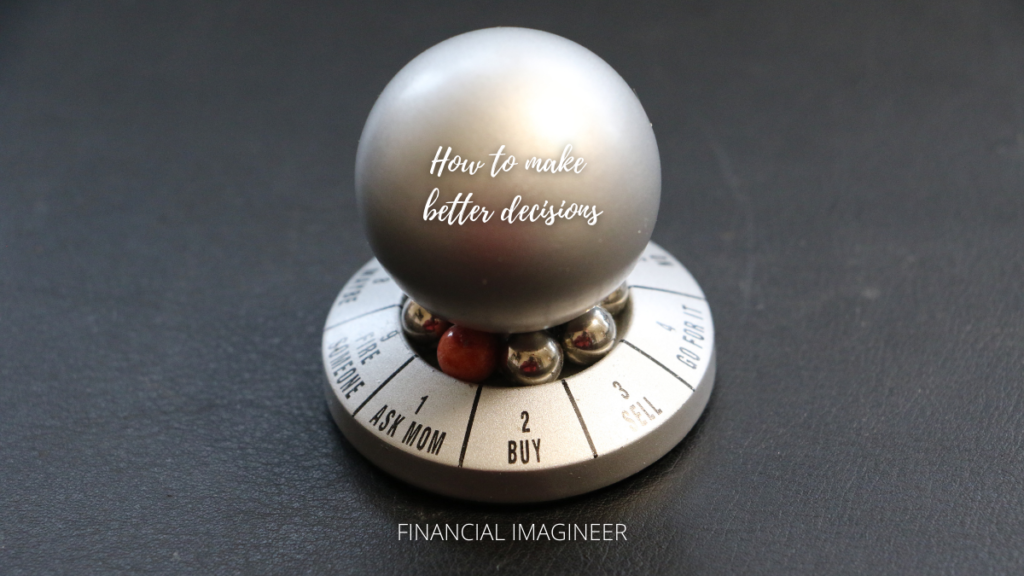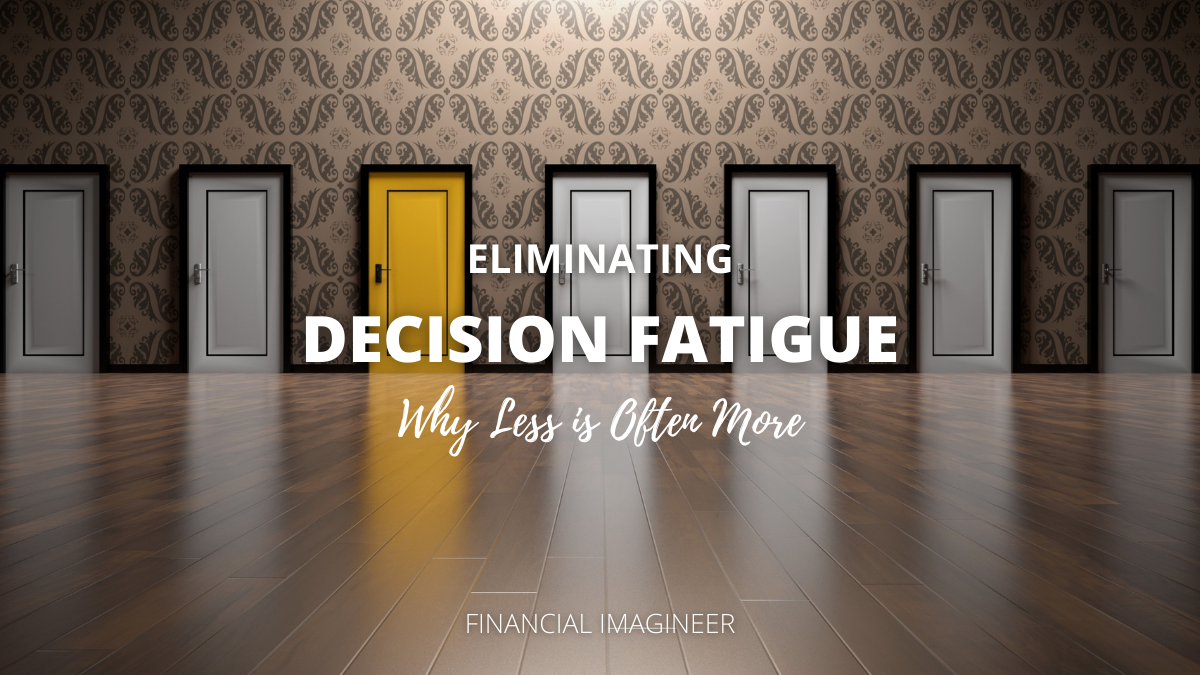Did you know happiness does not peak with a maximum of options provided but with an optimum amount of choices instead? Yes, more and more is not better per se. From a certain point onwards an increase in more choices offered decreases your happiness!
Less is more.
Did you ever enter a supermarket and got flabbergasted by the sheer amount of different oils, yoghurts, breads or cereals offered? You got the cheap ones, the ones made from better or different ingredients, then you got the extra quality stuff, the super cheap ones and even more.
Which one will it be?
The modern supermarket: Nightmare or blessing? You choose!

If you go to Starbucks you got to figure out your game-plan to order a simple beverage like: “Double-shot, half-decaf, three pumps of sugar free vanilla flavored syrup, half-soy, half-nonfat, skimmy-no-foam-latte… venti-sized but with sprinkles please – to go!”
Now imagine you go order coffee for your whole family or team and need to repeat the above 10x. Ordering a simple beverage or choosing an ordinary item in a supermarket can become a real headache already!
Did you know at Starbucks you can order 87,000 different combinations of drinks these days? No kidding!

The same applies for investing by the way!
On the New York Stock exchange, you can invest in more than 3,000 stocks, and that’s just at one (!) stock exchange to start with. Most people choose to go with an ETF instead.
Same goes for whom to trust or whom to follow on Twitter.
If you want to be better equipped to make “data driven”-like decisions, consider checking out Data Driven Investor or the DDI Medium distribution where you can also find Financial Imagineer publications.
We’re living in a “multi-options society”.
We’re overwhelmed by options!
How to Make Better Decisions?
Learning how to make better decisions is a most important skill nowadays!
Deep down our culture seems to be all about having more choices.
Don’t we believe having the “ability to choose” empowers us to be the “driver of your destiny”? You are what you consume!
Simple logic would say: The more choices offered, the better your informed choices should be able to satisfy your true needs and therefore improve your level of happiness!?
Well, apparently this is not how it works.
There are two different ways how humans react to this:
- You’re a satisficer = you are okay with “good enough”
- You’re a maximizer = you want to research everything in order to make the perfect choice
Guess who’s more happy long term?
Humans are fairly hopeless in predicting what makes them truly happy, hence in the long term the satisficers have a much higher chance to strike true happiness than the maximizers. Maximizers will be struck with endless comparisons and ultimately: Decision fatigue. If maximizers finally can settle for a decision, the satisficers have made many more decisions and have moved on in life already – happier!
Think of this ancient story that still holds true:
There was a donkey standing in the middle of two large piles of hay. They are both equally big but also equally far away from the donkey. Standing right there, the donkey had trouble to figure out where he should be going first. He was indecisive. As he kept contemplating, he starved to death.
The end.
Humans also “suck” at predicting what makes them genuinely happy – in the long run. They are able to go for a new, fancy car and enjoy the first few days with it. They’re expecting buying the car was a life changing decision towards more happiness. Then, they’ll get hit with a higher monthly car payment going forward that reminds them of their stupid choice for the years to come… like a sugar rush for a toddler! It’s the same concept.
Ultimately having no choice is bad. It’s the worst of all worlds. Having choices available to you is good but being offered too many options can be causing more harm than help improving happiness.

Some successful people have come up with great ways to counter these issues.
Mark Zuckerberg and Steve Jobs for instance worked on solutions to reduce their decisions to be made in a day and successfully boosted their mental capacity to focus on more important decisions for themselves and their companies.
How did they do it?
Just look at how they usually dress, they defined their most preferred outfit and got multiple sets of it! Zuckerberg got his t-shirt and Jobs usually had his sneakers and jeans: Problem solved. The same trick works with school or work uniforms. It reduces decisions to be made and mostly improves happiness.
The 10-10-10 Rule
If you got more difficult decisions to make, there’s actually a simple hack of how you can “feel” which way forward is the best.
Whenever you have a difficult decision to make, stay true to yourself, reflect your thoughts and ask yourself these three questions first:
1. How will I feel about this decision in 10 minutes?
2. How will I feel about this decision in 10 months?
3. How will I feel about this decision in 10 years?
This is no magic, no fancy decision making tool, but it forces you to quickly think through the short, medium- and long-term implications of what you’re about to decide.
This method is also known as the 10-10-10 rule. People like Warren Buffett use it. He likes to think of a can of coke he’s about to buy as the forgone $1mio dollars it could turn into a few decades later. No joke!
For more long-term happiness try to focus on the things that last.
For difficult decisions that impact more than just yourself, but eventually your family or more people I love to do 5-year planning exercises. Just that instead of dreaming and mapping out your future as dream team simply do the 10-10-10 exercise together with your stakeholders!
Eight Methods to Eliminate Decision Fatigue
To conclude this blog post I’ve prepared eight methods, or strategies, for you to cope and potentially even eliminate decision fatigue so you can live a happier life going forward.

1. Decide
Mostly making a decision is better than not deciding at all, just think of the donkey!
This one is simple but not easy:
Learn how to decide!
2. Prioritize
Focus on what matters the most, see the big picture and how your decision will add value to all stakeholders involved.
Know what matters!
Ingore the rest.
3. Good enough is good enough
Don’t get lost in useless details, soon you will forget about them, become the satisficer instead of the maximizer.
Don’t get stuck with irrelevant details.
Move on!
4. Apply the 10-10-10 exercise
See the short, medium- and long-term impact, this in itself can help solve many decision making problems already.
Think in different time frames!
5. Simplify
Less is more, if the world doesn’t reduce your choices for you, find ways to do it yourself.
Simplify your life!
Eliminate the unnecessary.
6. Automate
Facing similar decisions repeatedly? Define a clear set of rules and have those make the decision on your behalf instead.
Automate your investment contributions or set-up certain rules for better decision making.
Automate or delegate where possible!
7. Stick to your decisions
Take the time and effort necessary to make high quality decisions.
But once you’ve decided, settle with it.
Learn to accept and be happy with your choice.
No regrets!
8. Practice gratitude
Stop thinking the grass is always greener on the other side, focus on the positives of your choices and stick to your path!
Stop comparing yourself with the Joneses and be more happy!
The secret of happiness is not found in seeking more, but in developing the capacity to enjoy less.
If you’d like to read more about this topic I highly recommend you the following books: The Paradox of Choice by Barry Schwartz or Stumbling on Happiness by Daniel Gilbert.
If you found today’s post helpful, kindly consider sharing it with your friends and don’t forget to subscribe my blog by email, like my Facebook page or follow me on Twitter.
Cheers and hopefully you’ve learned something that will help you making more happy decisions!
Matt
Disclaimer: Please be made aware that the some of the links used above may be affiliate links for which Financial Imagineer could receive a compensation.

